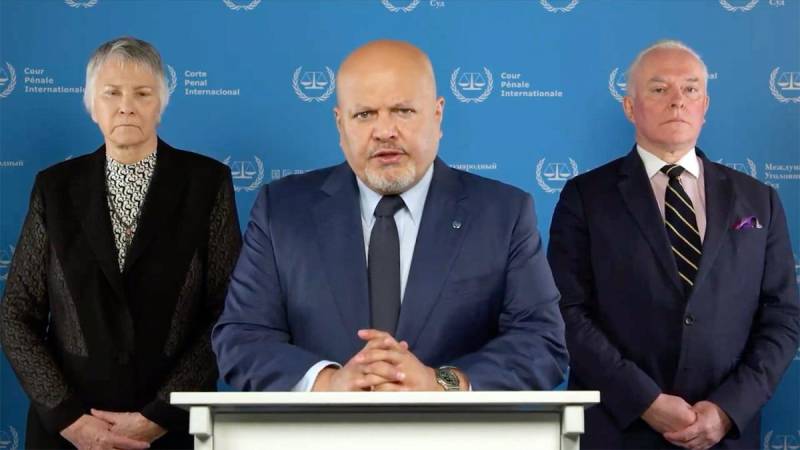
An investigation by the Guardian and Israeli magazines +972 and Local Call revealed that Israel has attempted, for the last 9 years, to derail the International Criminal Court’s inquiries into war crimes committed against Palestinians.
Israeli intelligence agencies, acting in concert with Prime Minister Benjamin Netanyahu’s office and the ministries of foreign and strategic affairs, sought to hack, surveil and pressure ICC staff to cease their investigations. +972 Magazine claims that “the covert operation mobilized the highest branches of Israel’s government, the intelligence community, and both the civilian and military legal systems in order to derail the probe.”
In the course of this nearly decade long operation, Israel not only surveilled and threatened Karim Khan, the current Chief Prosecutor of the ICC, but also his predecessor Fatou Bensouda. The Guardian’s investigation revealed that the covert operation against Bensouda was overseen by Yossi Cohen, the head of Mossad, Israel’s foreign intelligence agency and a close Netanyahu ally.
The revelation of Israel’s “war” against the ICC follows prosecutor Karim Khan’s allegations of war crimes and crimes against humanity against Israeli Prime Minister Benjamin Netanyahu and Defense Minister Yoav Gallant, over Israel’s military campaign in Gaza, which has killed more than 35,000 Palestinian civilians.
The espionage operation against the criminal tribunal became a priority for Israel in 2015, when Palestine was recognized as a state by the UN General Assembly, and became a member of the International Criminal Court. Alarm was raised among Israeli officials due to the fear of arrest if they travelled to any of the court’s 124 member states, if accused by the ICC.
After Palestine joined the ICC, any alleged war crimes or crimes against humanity committed in Palestinian territory would fall under the Court’s jurisdiction. This prompted then Chief Prosecutor Fatou Bensouda to initiate a preliminary examination of the ‘situation in Palestine.’ A month after this, two men turned up to Bensouda’s private residence in The Hague and hand-delivered a letter with “hundreds of dollars in cash and a note with an Israeli phone number.”
The Guardian reports that multiple senior officers in the Israeli military wanted military intelligence to join the response to Palestinian membership of the ICC, fearing prosecution in The Hague. Bensouda and her staff were vulnerable to surveillance and hacking because they had to conduct their research and inquiry via telephone, a consequence of being blocked from accessing Gaza and the West Bank by Israel.
The Guardian quotes a source as suggesting that there was no hesitation in surveilling Bensouda because “she’s black and African, so who cares?”
The Guardian also revealed that the Israeli authorities set up a secret back channel with the ICC, an obvious problem given that Israel does not recognize the authority of the court. The surveillance of ICC staff provided the Israeli diplomats with leverage in these back channel communications, and Israel sought to exploit a core ICC principle called complementarity.
Complementarity prevents the ICC from prosecuting individuals if they are subject to credible state-level legal action; Israeli authorities sought to gather information about which specific incidents the ICC was seeking to investigate and would open up retroactive investigations to meet the complementarity requirement, which “which asserts that a case is inadmissible before the ICC if it is already being thoroughly investigated by a state with jurisdiction over it.”
Israel’s covert campaign also targeted Palestinian human rights groups and civil society organizations, particularly those that provided the ICC prosecutor’s office with evidence and material about Israel’s attacks on Palestinian civilians. +972 writes that “the primary surveillance targets were four Palestinian human rights organizations: Al-Haq, Addameer, Al Mezan, and the Palestinian Center for Human Rights (PCHR).”
Israeli authorities also collaborated with the Donald Trump administration in their attempts to discredit Bensouda; this culminated in sanctions on Bensouda and other top ICC officials on charges of “financial corruption.” The sanctions were later lifted by President Biden.
Bensouda was also targeted by Yossi Cohen, who personally met with her on a number of occasions and subjected her to unwanted calls, according to sources. She was later succeeded as prosecutor by Karim Khan in June 2021, after having launched a full investigation into war crimes in Palestine once the ICC’s pre-trial chamber ruled that the ICC had jurisdiction in the occupied Palestinian territories.
Khan and his staff have also been targeted with communications interception and surveillance by Israeli intelligence, which has prompted the ICC to strengthen its security. This has included phone free areas, and security checks on all devices.
Khan later proceeded to apply to the ICC’s pre-trial chamber for arrest warrants for Israeli Prime Minister Benjamin Netanyahu and defense minister Yoav Gallant, and for Hamas leaders.
